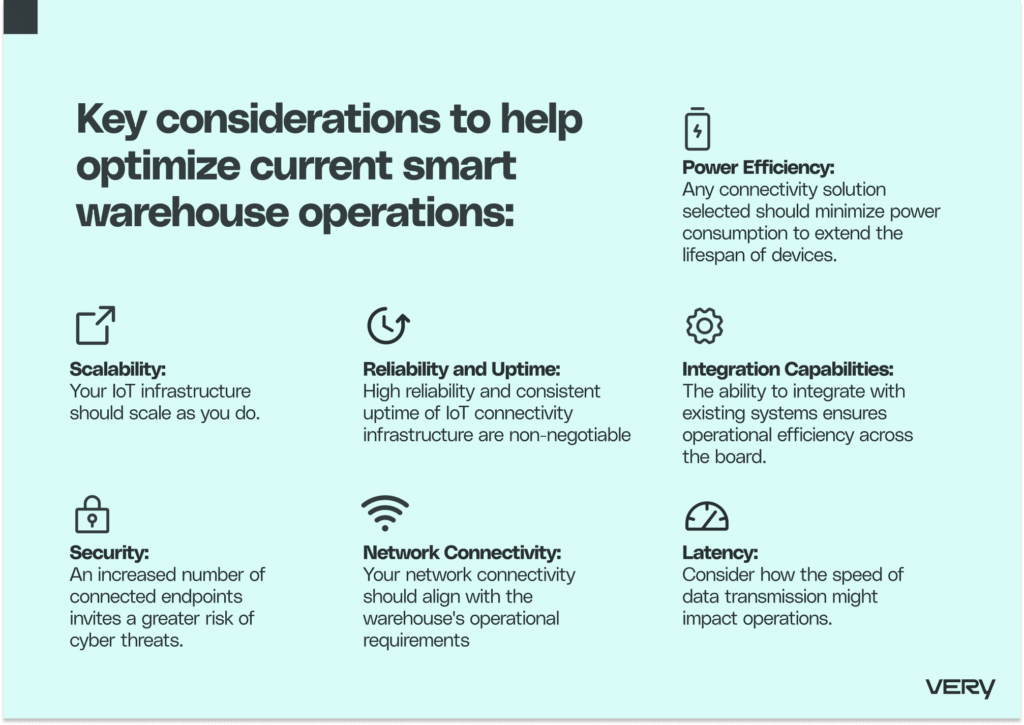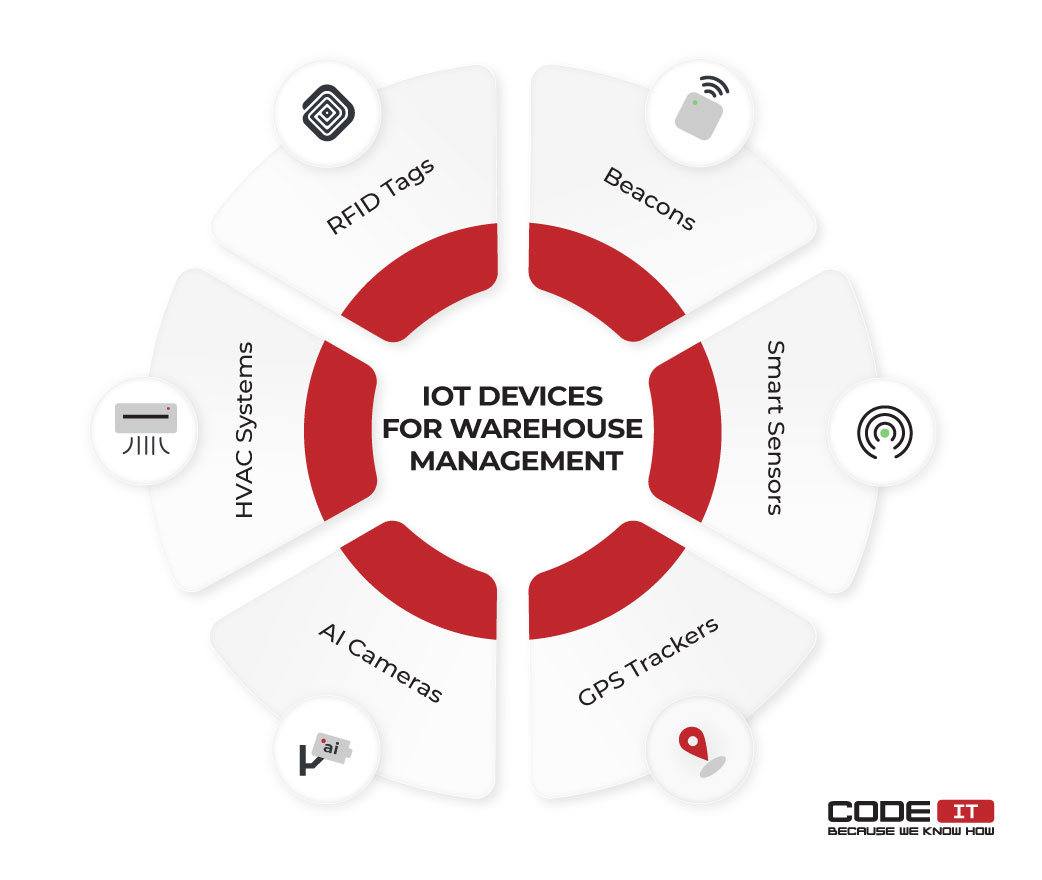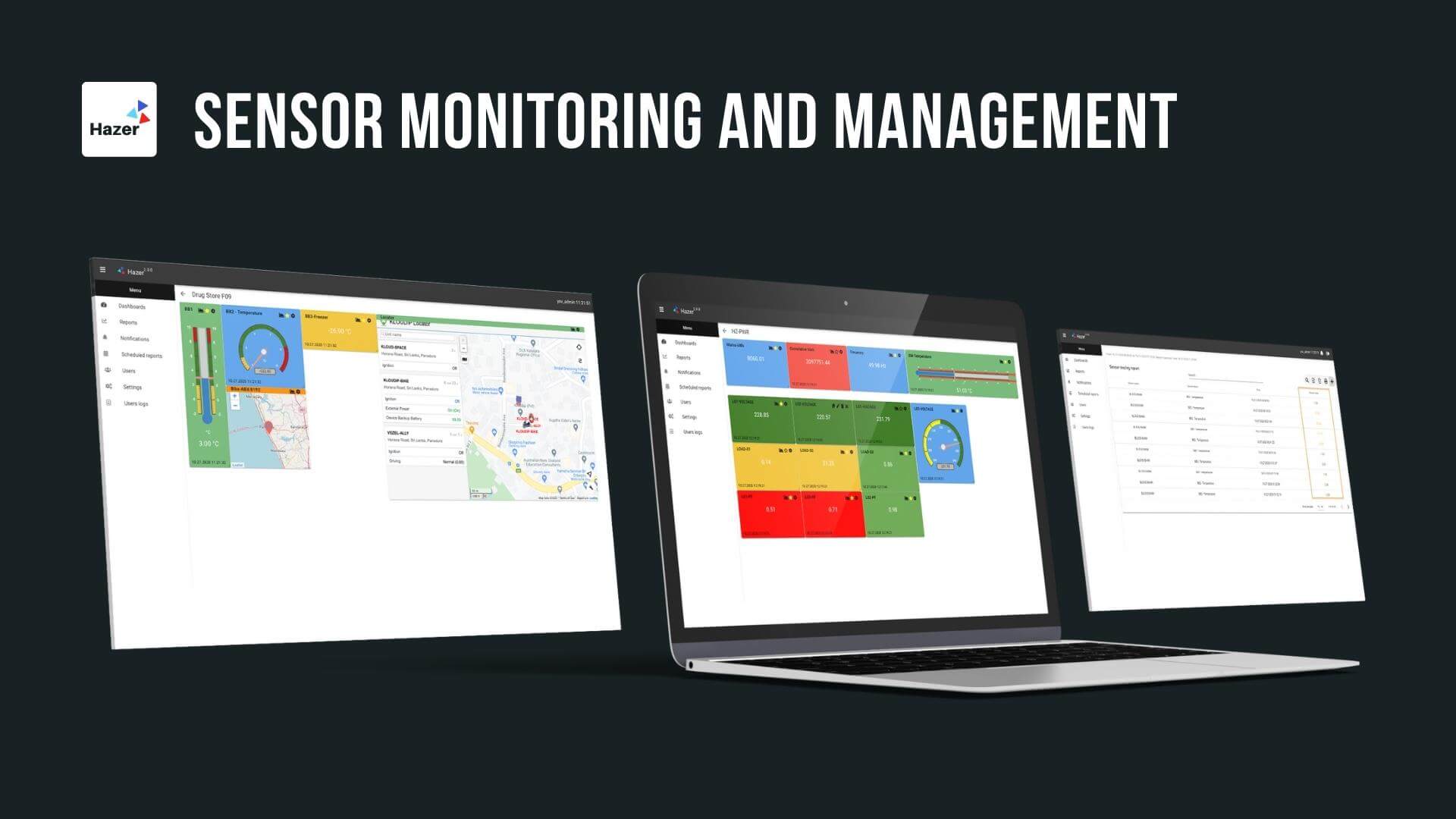What Makes A Smart Warehouse Smarter Optimized IoT Connectivity Circuit Diagram An IoT system foresees the opportunity to gather data automatically and send requests to intelligent devices. The architecture of an IoT-enabled warehouse management system is the following: 1. IoT Devices. All types of smart sensors and IoT devices gather raw data, so it get processed by IoT-based systems. The biggest supply chain sharks are frequently located in different parts of the world. Therefore, it's not easy to control every process to make sure everything goes smoothly. An IoT-based smart warehouse management system enables managers to monitor the delivery process, the current location of goods, and the speed of vehicles.

A smart warehouse management system (WMS) helps store managers keep track of all inventory-related activities. Such tools are packed with tracking, documentation, and reporting features so managers can be able to manage goods, assess employee efficiency, and do taxes via a single platform. That's why adopting IoT, cloud-based management

IoT in Warehouse Management: Benefits, Applications & More Circuit Diagram
An IoT based warehouse management system combines data with automation and analytics, unlocking possibilities. Here are 3 successful examples of how IoT is transforming warehouse management: Amazon uses smart bots to automate material handling, accelerate order processing, and optimize operations.

The integration of IoT solutions in warehouse management has led to significant advancements in logistics and operational efficiency. Here are some of the most common IoT solutions used in warehouses today: Smart Shelving Systems: These systems use IoT sensors to monitor stock levels and send automated alerts when inventory is low, ensuring Smart warehouse management systems are continuously changing, being powered by new technologies and devices. Look at the most promising tech solutions that can greatly change your approach to managing facilities and organizing warehouse operations. Smart Glasses ; Smart glasses can also be part of an IoT warehouse solution.

based Warehouse Management System? Circuit Diagram
The said warehouse management system development utilize the capabilities of IoT devices and reap benefits. Everything installed in the warehouse, in terms of air conditioning, humidifiers, and pressure control systems, can all be controlled within the cloud based warehouse management system. IoT enables perfect automated control to ensure
-main.jpg)
The challenge: Many warehouses already have established WMS software. The trick is to make new IoT devices play nice with these existing systems. The solution: Application Programming Interfaces (APIs) and middleware act as translators, allowing IoT devices and WMS to communicate seamlessly. Applications of IoT when integrated with Warehouse Systems 1. Enhanced Visibility and Real-Time Tracking. One of the most significant benefits of IoT in warehouse management is enhanced visibility. Traditional warehousing systems rely heavily on manual data entry and periodic checks. Smart shelves use IoT sensors to monitor stock levels, trigger automatic reordering, and eliminate manual counting, ensuring inventory is always at optimal levels. Implement an IoT-based Warehouse Management System With Us! Modern technologies are transforming various industries. Warehouse management, once filled with time-consuming manual
